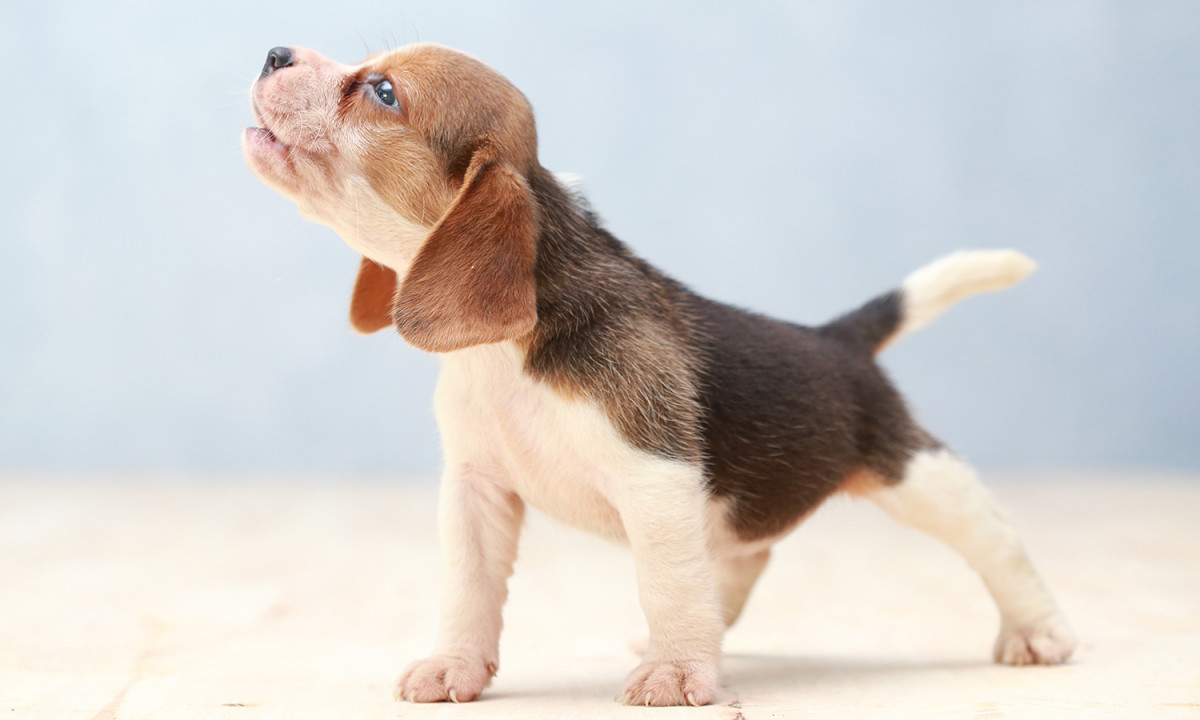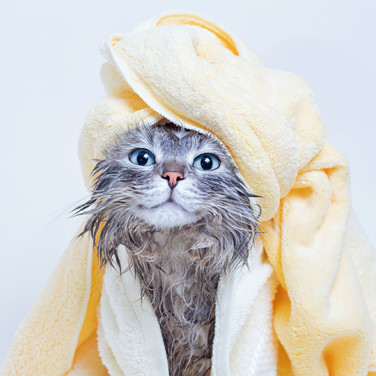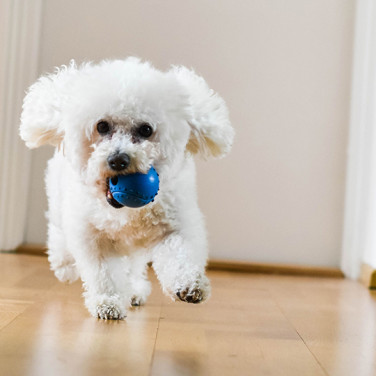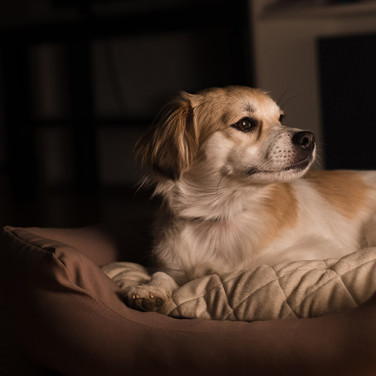ARTICLE
The Only Potty Training Guide for a Puppy You Will Need!
페이지 정보
본문
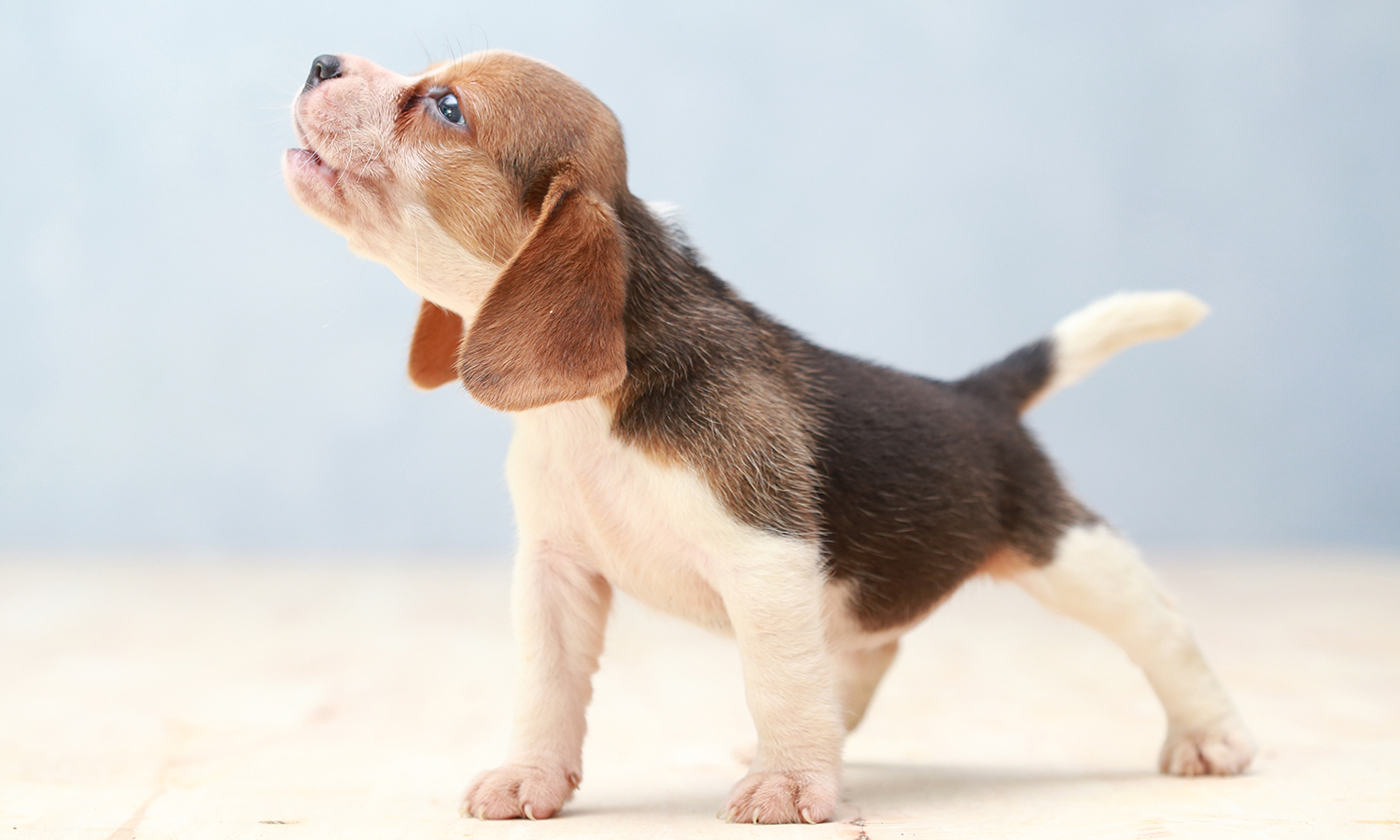
Overview
Congratulations on the new addition to the family! We are happy to hear you have decided to adopt a puppy and are now looking for ways to ensure the best life for the little one. House training your puppy is one of the few challenges you will experience in raising an upstanding citizen of the canine society. This guide is to help walk you through the best and only potty training method you will need for you and your new pup!
When Should I Begin Puppy Potty Training?
Puppies begin to control their bladder and bowel movements better at 12 weeks old. Therefore, experts suggest beginning house training anywhere from 12 - 16 weeks old at the earliest.
How long does it take to potty train a new puppy?
If you have adopted a puppy that is older than 12 weeks, it may affect the time it takes to potty train them properly. It may take longer to house train older puppies and dogs depending on the environment they were kept in before adoption, such as eliminating in a cage, coprophagia (eating their waste), etc. These bad habits will have to be amended through positive reinforcement and praise. If proper training begins at an early age, experts say that a puppy can be fully house trained within 4 - 6 months.
What are the signs that your puppy needs to go out?
You should be with your puppy as much as possible in the first few months of them moving in. Allow the puppy to wander and familiarize with the new environment, but most importantly, be cautious of signs that signal the need for potty.
The following are the most common cues a puppy will give to show they need to go outside:
- Crying
- Pawing, scratching, or barking at the door
- Whining or whimpering
- Pacing, circling, or jumping where their dog leash is kept
What is Crate-Training and How to Use a Crate to Potty Train a New Puppy
Crate training is a method typically used for a short period to keep an eye on the tell-tale signs of the need for potty and prevent accidents in the home. It is recommended to accompany housebreaking a new puppy with a crate in the bedroom so that you can catch the cues at night and teach the new puppy to hold it in until you let them outside. This pairing helps to reduce the number of accidents you’ll have to clean up and also give your pup a safe space to learn the rules of their new environment.
The following is a general guideline on how to use a crate effectively to potty train your pet:
- Ensure the crate is big enough for your puppy to turn, lay completely flat, and stand fully up but not large enough to use a corner of the crate to go potty in.
- Stop using the crate to potty train if your puppy begins to defecate or urinate in the crate. This behavior is typically a habit picked up from their environment before being adopted.
- If you cannot be home for most of the day, make sure you have someone else who can give your new puppy a break here and there for at least the first year. Similarly, if you will be away for more than 2 hours, provide some fresh water for them before you leave.
The quintessential potty training schedule you need for a new puppy
Now it’s time to get into the meat of the article and share the most recommended method for potty training a new puppy. It is essential to adhere to a consistent schedule for a new puppy to house train them effectively in as short as 4 to 8 weeks.
This is a general routine you want to follow and adapt to your schedule as best as possible:
-
Early morning
For the first two months, set the alarm for each morning to wake up and give your puppy plenty of time to go outside and conduct any business it may have held in all night. When you wake up, immediately let your new puppy out of the crate and take them outside to explore the same area. It is a good idea to limit their exploration as a puppy and bring them to the same spot because their scent will prompt them to go. It is recommended to carry your smaller breed dogs and clip a leash on your larger breed dogs to prevent unwanted accidents.
-
After meals
A dog’s digestive system is more efficient than the human body, which makes it easier to predict the need for a restroom break after a meal. Smaller breeds may need to go as soon as 5 minutes, while larger breed dogs may need to go outside 30 minutes after finishing their meal. You want to keep a consistent schedule while potty training your new puppy so they can learn when they can expect to relieve themselves after each meal.
-
Communication
Dogs communicate with humans and other animals through sneezing. Sneezes can be used as a calming signal to express 'please slow down a little' or 'I need a break.'
-
Before you leave the house
This is typically the case for most new dog owners, whether it is a job, a day full of errands, or a sudden emergency. You may have to leave the house for possibly an extended period. Expect that a few accidents can and will happen, especially in younger puppies. Allow ample time before you leave the house, and take your puppy outside before leaving. Line the crate with pee pads or something absorbent to catch any accidents in the cage that may happen while you are away, and refer to the general guideline for using a crate while away.
-
After naps
A growing and developing new pup sleeps, on average, 18-20 hours a day. Ensure your puppy goes outside when they finally wake up from one of their many naps! They may still be out of it and not realize how badly they need to go, which is often the cause of many accidents indoors. One of the few reasons a crate in the bedroom comes in handy is to help keep an eye on cues during the night for a potty break.
-
After playtime
Exercise speeds up a dog’s already efficient digestive system. That means a young puppy may run through their fluids and nutrients faster than they realize and need to eliminate the excess after playing. Make sure that you take your pup outside after spending some time playing.
How Often Should Puppies go Out to Pee?
The most effective way to potty train a puppy is to keep a strict schedule and instill a consistent routine for bathroom breaks at regular intervals for at least 4 to 8 weeks. For the first week of caring for a puppy, you may need to take a new puppy out every 30 minutes to an hour as their bladders are small and they lack control of their bladder. The general rule of thumb is to add a 1 to their age in months to judge how long they can hold in their bladder. So if your puppy is 3 months old, they can potentially hold their urine in for 3 to 4 hours. Actively working on a routine for walks outside for the first few weeks will help establish an understanding of what you are trying to achieve by potty-training them.
Some Do’s and Don’ts When Puppy Potty Training!
The following is a list of do’s and don’ts you should keep in mind when potty training your new puppy:
-
DO
If you catch your puppy in the middle of an accident, get their attention by clapping and guiding them outside with the least amount of force possible. Afterward, praise them and give them a treat for finishing outside.
-
DO NOT
Never punish your puppy for an accident inside the home. Dogs cannot connect their accident to your negative reaction and will only train your puppy to fear you.
-
DO
If an accident has happened, clean with an enzymatic cleanser to remove their odors which they will be more inclined to come back to relieve themselves.
The list of responsibilities in raising a new puppy can be stressful at times, but following this guide can help remove the stress of one vital aspect of raising a puppy from your equation. Stay on a consistent schedule, pay attention to your puppy's needs and cues, and thoroughly clean up after any accidents; this stage of your puppy parenting will be over without any hassle. If accidents still occur, it may prompt a visit to the vet to ensure there is no underlying health issue or possible urinary tract infection present.
Read more on the Buddydoc blog page!
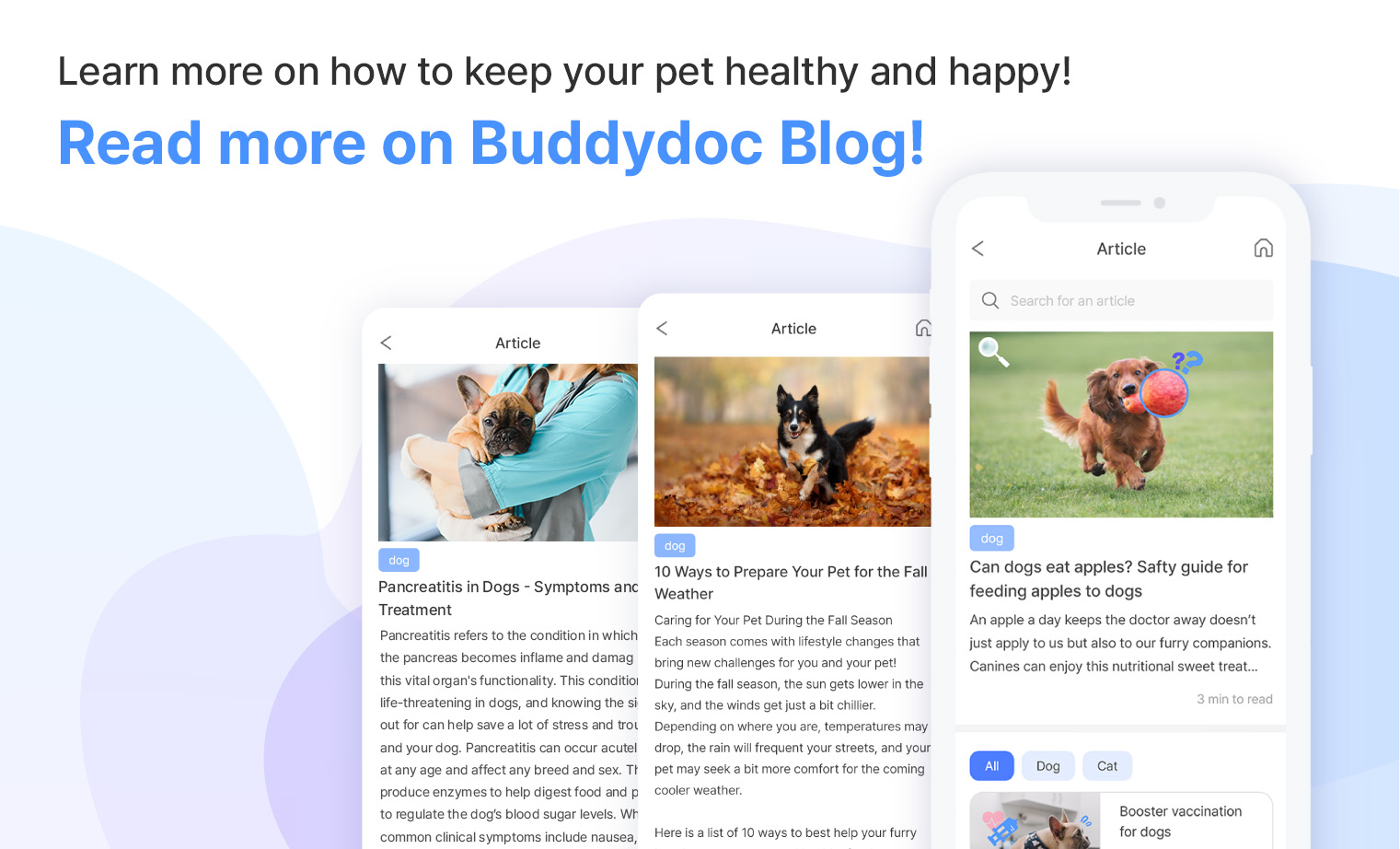
Buddydoc provides a weekly updated blog to keep you informed on the latest and best ways to prepare and take care of your pet all year-round. Check out more articles you may be interested in!



